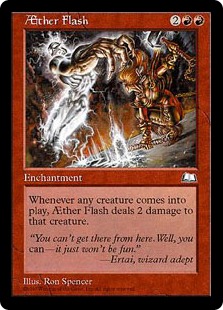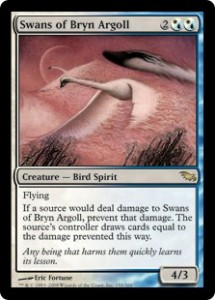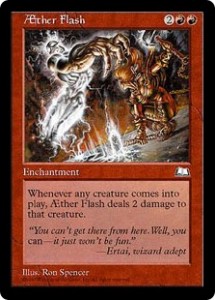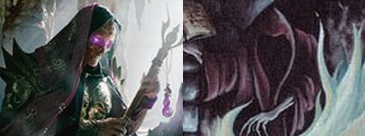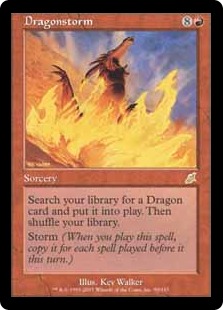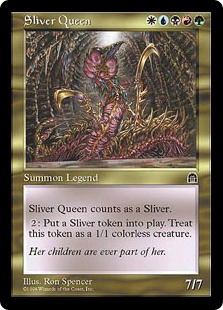The Evolution of a Casual Planeswalker (Part 3 of 3)
Last week I stated that there is a casual player inside every competitive player, but suggested that the flip side of that coin may not be so true.
Is there a competitive player in every casual player, and if so, which profile do I fit? The answer is not so simple, and the explanation may shine some light on the shortcomings of many a casual magic enthusiast turned competitive.
Today, i’m going to pick up where I left with some thoughts regarding my transition from casual planeswalker, to aspiring professional planeswalker. You see, many of the greatest minds to ever play professional magic are gifted at not just this one game, but have incredible innate talent at many other numbers based hobbies, the most common of which are Poker and blackjack. A number of great writers have explored this subject exhaustively, so i’ll spare you the details for now, but the point i’m trying to illustrate is that to succeed at magic ahead of the expected learning curve, it’s likely that you’re drawn to the game for reasons it takes many of us years to realize for ourselves. I’ll give you an example you’re probably familiar with; when asked to explain the gist of the game to someone that has no concept of it, my explanation usually sounds something like this;
Me: It’s like poker meets chess, mixed with lord of the rings. Roughly.
Person: Wow, sounds pretty crazy. Do people dress up and stuff?
Me (lightly frustrated): Rarely. It’s not really about that. The flavor, though important, holds no bearing on the game play. It’s just numbers and percentages really.
Person: Oh, so then it’s a math game.
Me: On paper it can look at it that way, but math isn’t the reason it’s fun. Unless i’m explaining it in this context, math is a pretty narrow aspect to focus on. I’s important to win, but not to play.
Person (confused and no longer interested does not respond).
You see, the aspect that makes magic interesting and easy to grasp for the professional is precisely the opposite of the aspect that draws most people to the game. My earlier statement regarding player types existing inside each other may have been confused in retrospect. There may in fact not be a casual player in every competitive one, only because so many of them bypassed the casual part of the game completely when they learned how to play. Some of them just want to win, no matter the cost.
So when you’re sitting across the table from one of these players, and you curve out with Aether Flash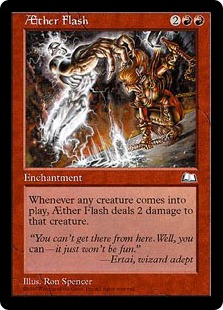 Aether Flash into Swans of Bryn Argoll
Aether Flash into Swans of Bryn Argoll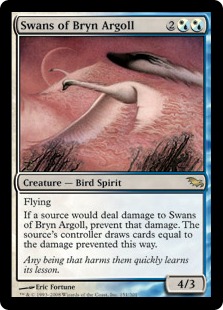 Swans of Bryn Argoll, your thought process is completely different from theirs. While you may be grinning on the inside, excited by the turbo Mulldrifter
Swans of Bryn Argoll, your thought process is completely different from theirs. While you may be grinning on the inside, excited by the turbo Mulldrifter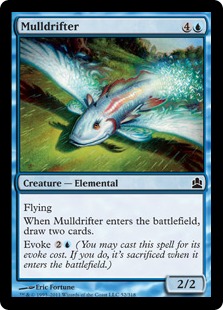 Mulldrifter you’ve just made, they’re not registering the art, the flavor, or the awesome synergy you’ve just presented at all. They’re just thinking about how they’re going to abuse your swans for their benefit, and how cumbersome that combination is compared to playing a Vendilion Clique
Mulldrifter you’ve just made, they’re not registering the art, the flavor, or the awesome synergy you’ve just presented at all. They’re just thinking about how they’re going to abuse your swans for their benefit, and how cumbersome that combination is compared to playing a Vendilion Clique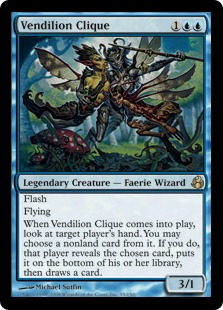 Vendilion Clique and a Jace, the Mind Sculptor
Vendilion Clique and a Jace, the Mind Sculptor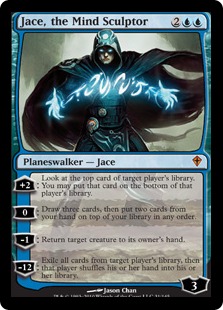 Jace, the Mind Sculptor instead. Some pro’s i’ve spoken to have even admitted to being so conniving, they’ll placate you or intentionally hurry you just for the sake of breaking your focus.
Jace, the Mind Sculptor instead. Some pro’s i’ve spoken to have even admitted to being so conniving, they’ll placate you or intentionally hurry you just for the sake of breaking your focus.
Sound a little foreign to you?
Welcome to the vast majority of my life playing magic.
There are 3 basic player profiles that they talk about in card design that will basically show both sides of the matchups i’m talking about.
1. Timmy: The casual player interested in having fun and only fun. This is his reward for playing.
2. Johnny: The creative mind interested in winning games on his own terms, and with his own deck designs and favorite cards. Cleverness is the bees knees here.
3. Spike: The competitive or professionally minded player. Win. At. All. Costs.
The articles that really break these psychographic profiles down can be found here and here, but the reason I mention them is that if you’re anything like me, you’re a hybrid of the second and third category, and that puts you in a position to fall harder than anyone else. You’re essentially incapable of giving in to common sense and playing with generally “good” cards, because that would be too obvious. However, you’re unwilling to keep your clever little creations out of the tournament room because you really want to win. You want to prove to the world that you’re good at this game you spend so much time, money and weekends playing, and the combination of those two will be the end of you.
Unless you adapt.
I believe it’s possible to do, and if I didn’t i’d probably quit magic tomorrow. I mean seriously. Who wants to lose that much.
From summer 2007, when I discovered the drafts and the tournament room at Cardhaus games in Lynnwood, WA, all the way through last weekend playing at my 8th competitive REL level event in this year, i’ve grown through many of the challenges that serious magic presents to its aspiring players. I’ve played homebrew decks dozens of times (not always to failure by the way), and i’ve won as many drafts as i’ve lost. However, whether losing or winning, the transition from Denny’s to international convention centers is a long one, and one that is fraught with peril and self exploration for the casual player.
That about does it for my introductory series here at The Casual Planeswalker, but don’t worry. If you’re enjoying my writing you can check back here every Wednesday for my brand new weekly column!
Until then, take care and play magic.
– Ben Bateman
